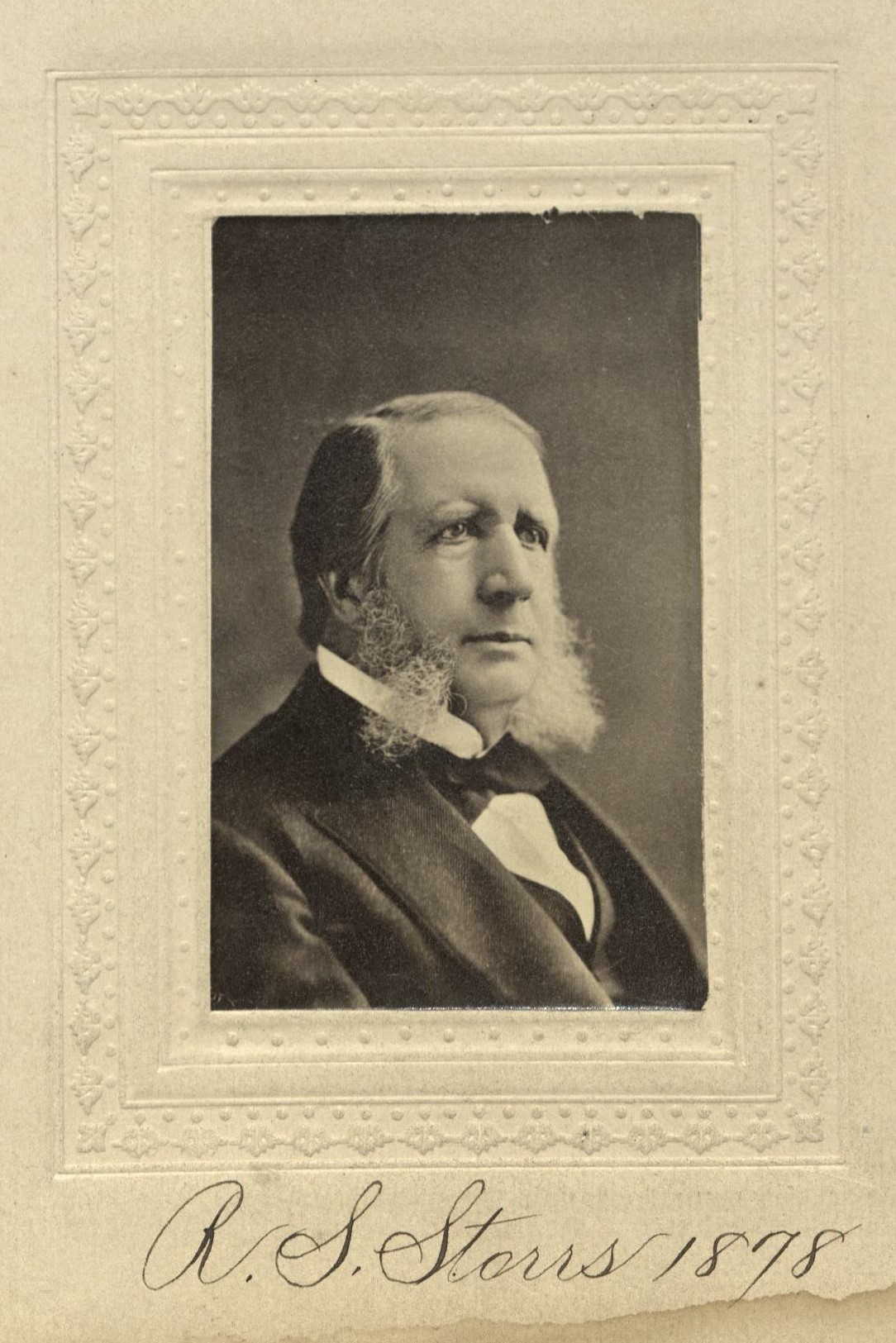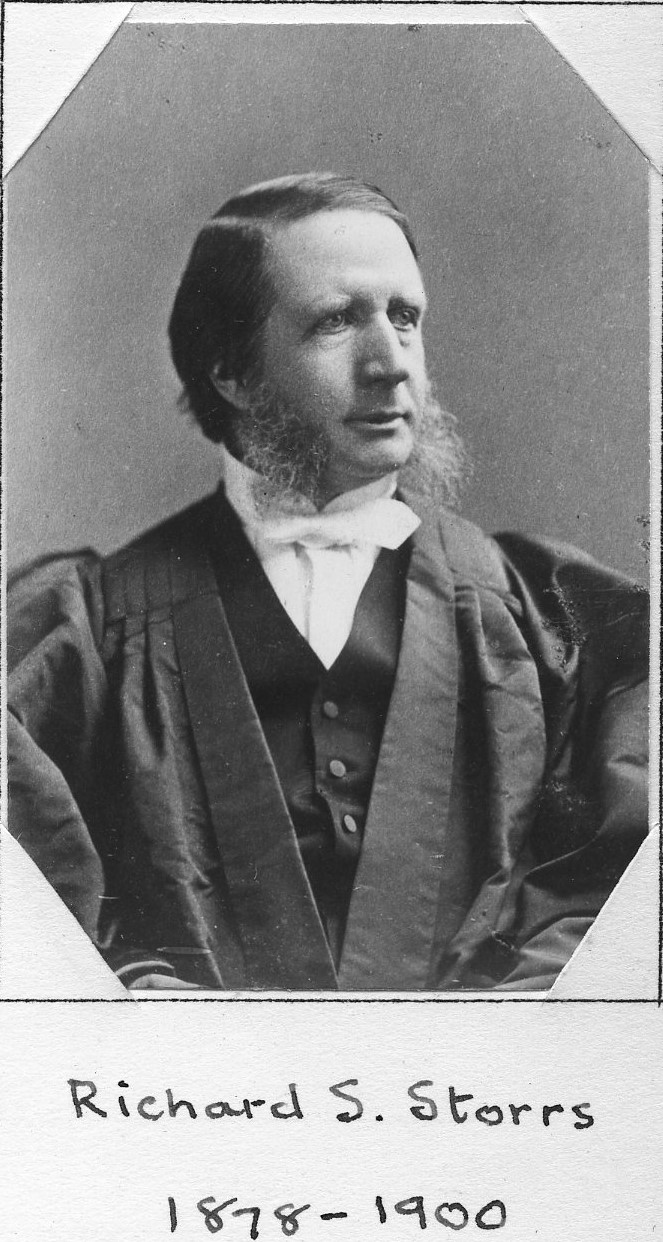Clergyman/Civic Affairs
Centurion, 1878–1900
Born 21 August 1821 in Braintree, Massachusetts
Died 5 June 1900 in New York (Brooklyn), New York
Buried Green-Wood Cemetery , Brooklyn, New York
, Brooklyn, New York
Proposed by Morris K. Jesup and Henry Codman Potter
Elected 1 June 1878 at age fifty-six
Proposer of:
Seconder of:
Century Memorial
Among the great clergymen of the present century the Rev. Richard Salter Storrs, the third of that name and the fourth in a line of distinguished divines, stood preëminent during a long pastorate of fifty-three years in the Church of the Pilgrims in Brooklyn, which he founded, maintained and adorned.
He exhibited in his whole career Burke’s definition of the body of true religion, which he says “consists in obedience to the will of the Sovereign of the world in a confidence in His declaration and in imitation of His perfections.”
His theology represented the most conservative type of the traditional Protestantism of our time, so invested with a gorgeous rhetoric as “to have its outlines much obscured and losing half its terrors in losing all its grossness.”
His ministry was commanding by its dignity and in its success. He was foremost in the promotion of all good enterprises and in the advocacy of right principles. No one was more sympathetically identified with the public and social development of the community in which he lived than he. The institutions which he founded, or which were maintained by the impetus he gave to their support, can scarcely be enumerated. The Long Island Historical Society, the Brooklyn Library, the Brooklyn Institute, the Prospect Park, of which he was a Commissioner for several years; the Museum of Arts and Sciences, and the great Sanitary Fair of 1864, and his presidency of the American Board of Foreign Missions, are notable examples of his organizing powers and his diligence in practical affairs.
As an orator he was unsurpassed, and on many great occasions, at College Commencements, at the Centennial Celebration in 1876, at the Semi-millenial Celebration under the auspices of the Bible Society, at the opening of the Brooklyn Bridge and countless others, the majesty of his sonorous periods held large audiences spellbound by the wisdom of his thought and the splendor of his scholarly diction, and gave him a continental reputation.
His literary work is a monument to the industrious habit of his mind and his unceasing diligence. His lectures and separate publications include more than fifty titles, and his editorial work upon the Independent, which, with Dr. Bacon and Dr. Joseph P. Thompson, he founded in 1848, gave evidence of the versatility of his mind and the extent of his research. All this time he was preaching sermons which gave him rank as one of the first pulpit orators of his day, and this service he continued for fifty-three years in one church, which he never could be tempted to leave. He was as noble in his physique as in his intellect, impressive in his power, dignity and repose, like “the shadow of a great rock in a weary land;” an august exponent of his traditional theology, an inspiration toward the highest civic ideals, a faithful soldier in that army which is eternally at war with sin and error and unrighteousness, under the leadership of that great Captain who is the Master of us all.
Henry E. Howland
1901 Century Association Yearbook


